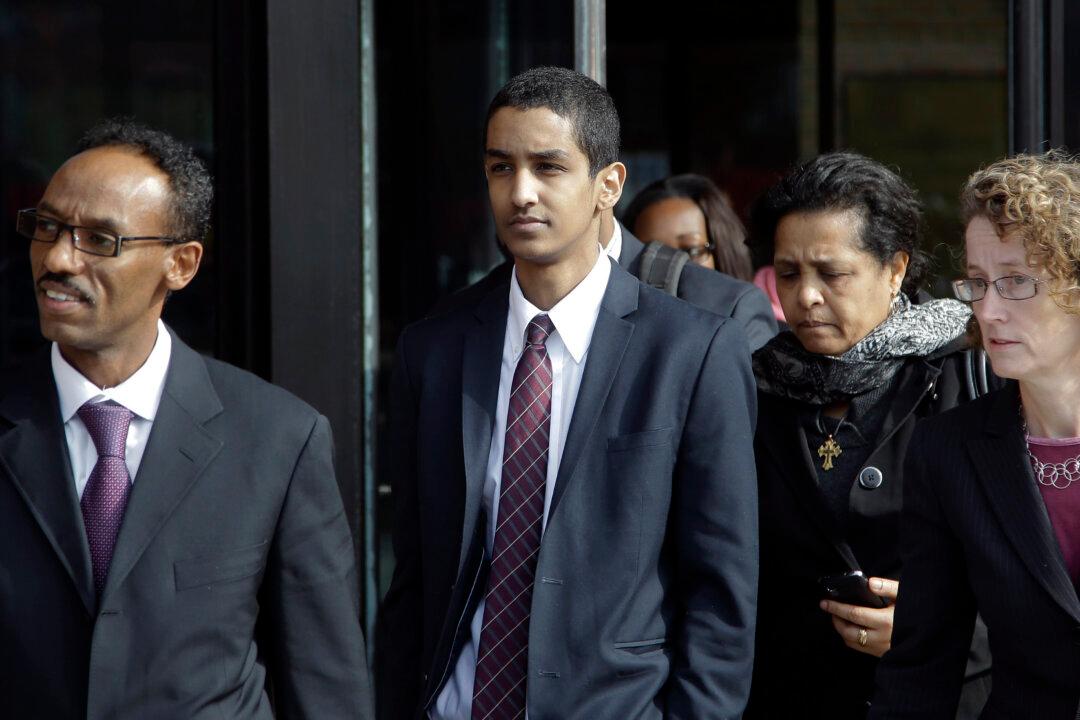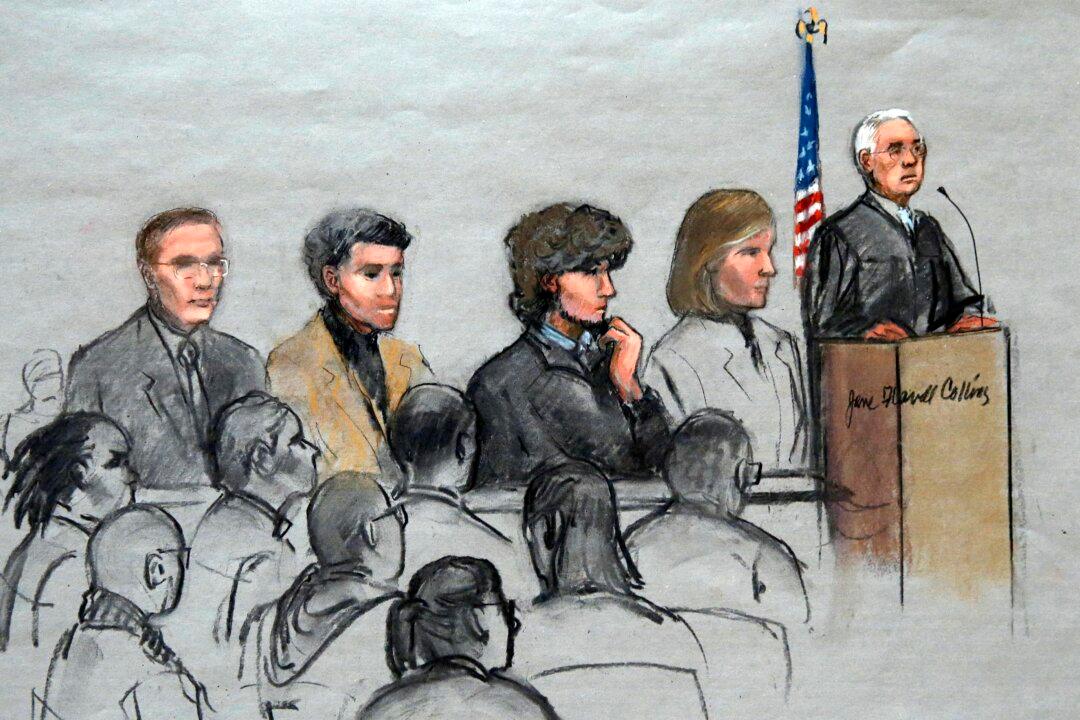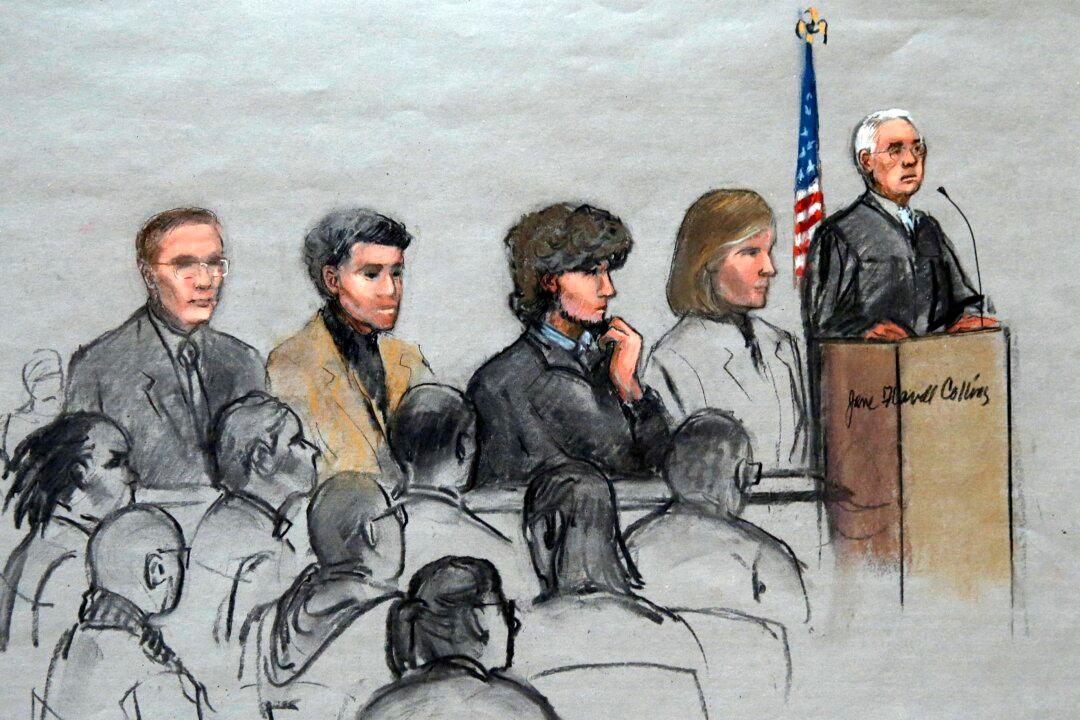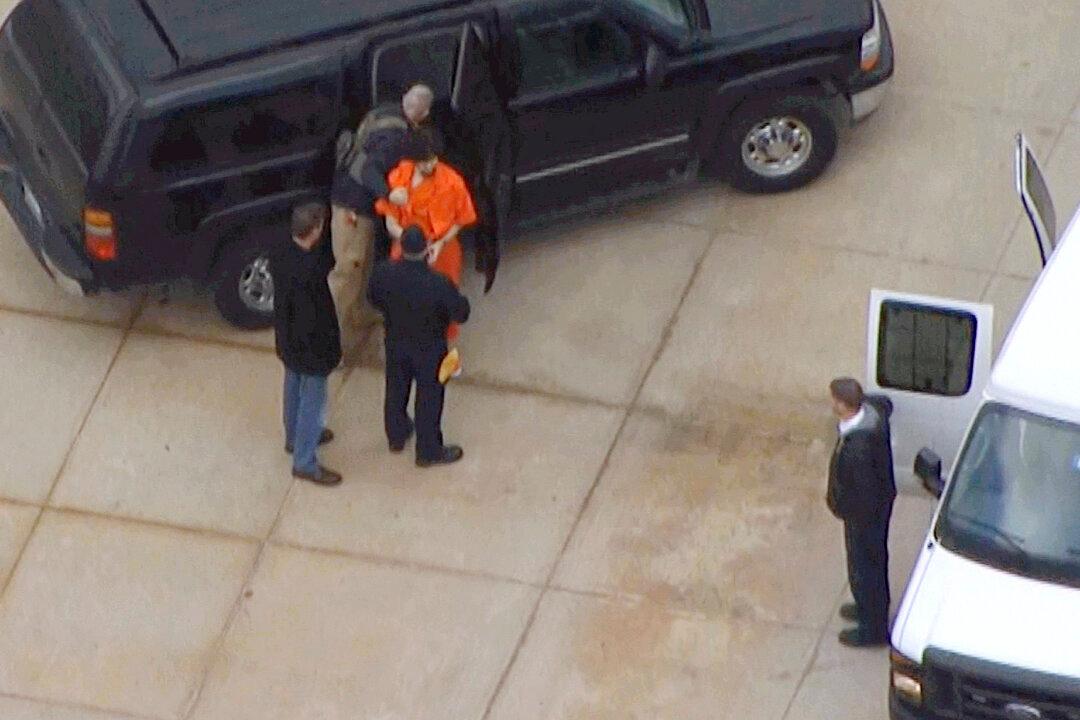BOSTON—Boston Marathon bombing suspect Dzhokhar Tsarnaev’s friend was convicted Tuesday of lying to federal agents during the investigation into the deadly 2013 attack.
Robel Phillipos, 21, of Cambridge, was convicted of two counts for lying about being in Tsarnaev’s dorm room while two other friends removed a backpack containing fireworks and other potential evidence three days after the bombing while authorities were looking for the suspected bombers. He looked straight ahead impassively as the guilty verdicts were read.
FBI agents testified that Phillipos told them a string of lies about the night of April 18, 2013, before finally acknowledging he had been in Tsarnaev’s room at the University of Massachusetts-Dartmouth with the two men who removed Tsarnaev’s backpack and computer.
Phillipos’ lawyers said he was a frightened 19-year-old who was intimidated by the FBI and too high on marijuana to clearly remember what he did that night. The defense called several friendswho said Phillipos smoked marijuana a half-dozen times that day.
The defense also called former Massachusetts governor and 1988 Democratic presidential nominee Michael Dukakis to testify for Phillipos. Dukakis, an old family friend of Phillipos’ mother, described a phone conversation he had with Phillipos five days after the bombings. Dukakis said Phillipos told him he had been questioned by the FBI for five hours but was so confused he didn’t remember what he said.
The defense also claimed that Phillipos’ alleged confession was coerced by FBI agents.
Phillipos’ attorneys said they will ask the judge to vacate the convictions and also appeal the verdict based on their argument that any statements he made to the FBI were not “material” to the bombing investigation.
Phillipos was charged with two counts of lying during a terrorism investigation. The basis for those charges was nine lies he was accused of telling the FBI during two separate interviews. The jury found him not guilty on several of the supposed lies, but concluded he did lie in some instances, leading to the two convictions.
Prosecutors said Phillipos first told the FBI he hadn’t been in Tsarnaev’s dorm room that day and hadn’t seen the backpack containing fireworks, only to later confess to being in the room with two other friends.
The jury, however, found that Phillipos wasn’t lying when he told the FBI he didn’t see the backpack or fireworks in Tsarnaev’s dorm room. Defense attorney Susan Church said that showed the jury “clearly rejected the so-called confession.”
Phillipos attended the high school in Cambridge and later college with Tsarnaev.
Phillipos was not accused of participating in the bombings or knowing anything about the planning. Church said Phillipos was “absolutely mortified” when he learned Tsarnaev was a suspect and had feelings of “shock and betrayal” that his high school friend could do such a thing.
During the trial, prosecutors scoffed at Phillipos’ marijuana defense, telling the jury that he was able to remember many details about April 18 and lied about his activities that night because he knew he had done something wrong.
After the guilty verdicts were announced, U.S. Attorney Carmen Ortiz said Phillipos “lied to agents when he could have helped” and “concealed when he could have assisted.”
The jury deliberated about 35 hours over six days.
The two friends who removed Tsarnaev’s backpack were both convicted of conspiracy and obstruction of justice.
Tsarnaev, 21, is awaiting trial in the bombings. He has pleaded not guilty to 30 federal charges and could face the death penalty if convicted.
Phillipos’ sentencing is scheduled Jan. 29, and he faces a maximum sentence of 16 years, though first-time offenders like him typically get much less. Phillipos will remain under house arrest on an electronic monitoring bracelet until then.
From The Associated Press



